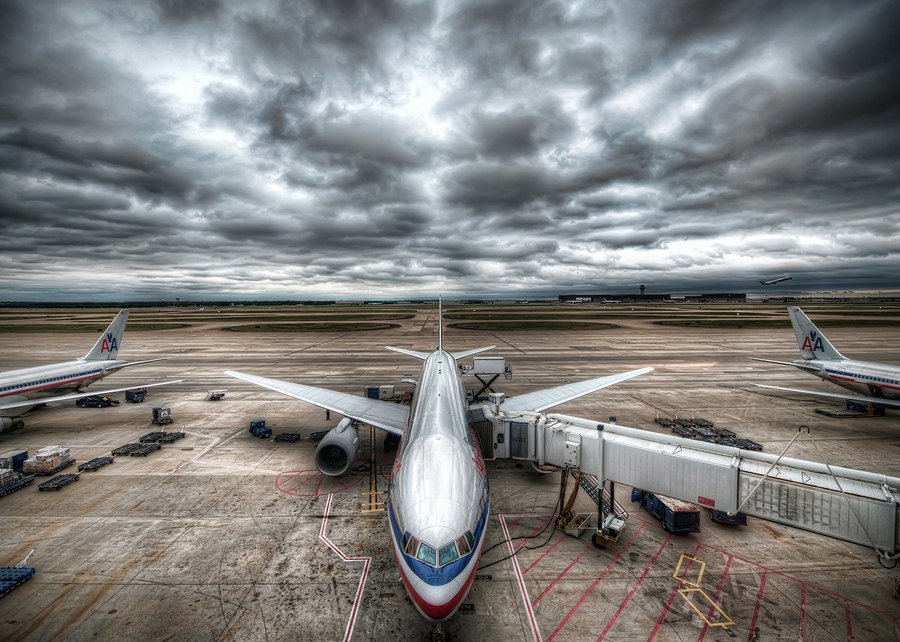
Most major aircraft maintenance now takes place overseas, in places like El Salvador, Mexico, and China. But the real question: should we care?
I recently ran into an article, from the Vanity Fair of all places, that exposes the apparently “disturbing” trend of outsourcing aircraft maintenance overseas.
The article opens with how the U.S. has lost about 22,000 aircraft maintenance jobs to aggressive off-shoring over the past ten years. I think this is a valid issue worth debating, but the author quickly dismisses the fact in favor of his central concern:
Do foreign mechanics make us less safe?
The author’s chief complaint revolves around the fact that many of these mechanics don’t speak English. This is a problem, he argues, because working fluency is a requirement for F.A.A. certification.
Over the past decade, nearly all large U.S. airlines have shifted heavy maintenance work on their airplanes to repair shops thousands of miles away, in developing countries, where the mechanics who take the planes apart (completely) and put them back together (or almost) may not even be able to read or speak English …
According to regulations, in order to receive F.A.A. certification as a mechanic, a worker needs to be able to “read, speak, write, and comprehend spoken English.”
Most of the mechanics in El Salvador and some other developing countries who take apart the big jets and then put them back together are unable to meet this standard. At Aeroman’s El Salvador facility, only one mechanic out of eight is F.A.A.-certified. At a major overhaul base used by United Airlines in China, the ratio is one F.A.A.-certified mechanic for every 31 non-certified mechanics.
To me, this argument seems flimsy at best. The underlying logic appears to go something like this:
- Working English fluency is an F.A.A requirement.
- You must be F.A.A. certified (and speak English) to know how to fix a plane.
- Lots of mechanics in places where airlines send planes to be fixed can’t speak English (and therefore are not F.A.A. certified), so …
- IMPENDING DOOM!
Unabashed fear-mongering aside, it’s fairly easy to start poking holes in this argument right away. First and foremost, is the only thing stopping these mechanics from being F.A.A. certified their inability to speak English? In other words, if all of them woke up tomorrow morning magically spouting Seinfeld quotes in the Queen’s English .. would their certification be a slam dunk?
I suspect this is the case, but the article doesn’t say. I am not a mechanic, nor am I an engineer, but I imagine the intricacies of airplane maintenance could be taught to a capable person who just happens to speak a language other than English. As long as you have a few supervisors on hand who can read the original manuals (which this article admits is the case), I don’t see any reason why Boeing’s instructions couldn’t be translated into Spanish, Chinese, or Valyrian for all I care.
Of course, this would mean that a mechanic could be very well-qualified to fix airplanes, but fail to gain F.A.A. certification only because they can’t speak a certain language. It’s like Airbus arbitrarily demanding all Airbus-certified mechanics to be able to “read, speak, write, and comprehend spoken French.” How many of these Airbus-certified mechanics do you think there’d be in the States?
I get how mandatory English fluency might make sense for other players in this space, especially those who have to communicate regularly with people from around the world. Pilots talking to aircraft controllers would be an obvious example. But I don’t think the same circumstances apply to an airplane mechanic.
What if English fluency was the only thing keeping these foreign mechanics from being F.A.A. certified? If this is the case, this entire article reeks of condescending nationalism that’s more appropriate for a time when imperial colonies were a thing.
I don’t have a lot of experience in this space, so I’ll defer to more knowledgeable readers on this one. What do you think? Does outsourcing aircraft maintenance really make us less safe?
Feature photo credit: Trey Ratcliff/StuckinCustoms.com, via the Vanity Fair.
h/t: Reddit.com
I gotta say this: sounds like the article was written by a Trump supporter.
If you are not born and bred in the US of A, or if you are, but have a foreign sounding name, you are suspect. As are all these mechanics, for that reason. Not born in the US, AND have foreign sounding names AND can’t speak English!
If it weren’t so appallingly small minded that it’s dangerous, it would be laughable. Especially as it comes from Vanity Fair, well known for over a century for its deep, insightful journalism. Or, not.
@MICKISUE I agree, i find it hard to believe that if you dont speak english your mechanical/repair skills are worthless? Come on seriously?